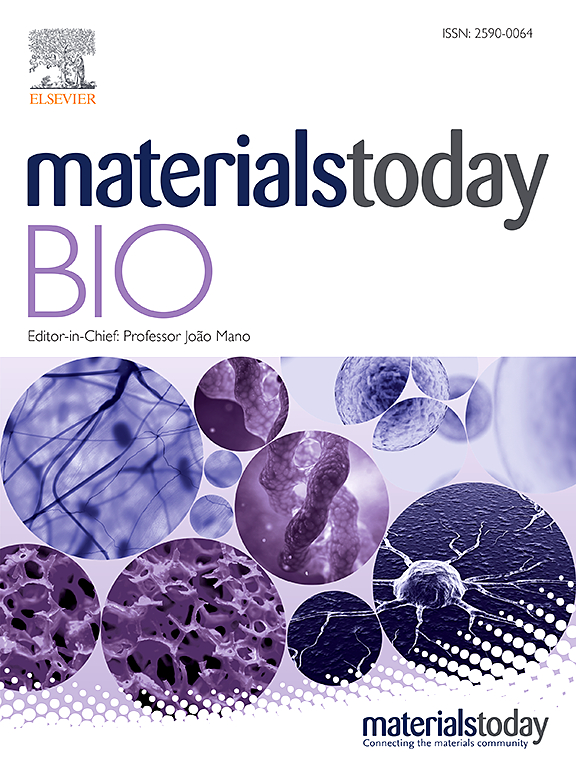In vitro and in vivo metabolic tagging and modulation of platelets
IF 8.7
1区 医学
Q1 ENGINEERING, BIOMEDICAL
引用次数: 0
Abstract
Platelets play a critical role in hemostasis at sites of injury and are capable of interacting with various types of cells in the bloodstream. The promise of utilizing platelets for diagnostic and therapeutic applications has motivated the development of facile strategies to functionalize platelets. However, platelets with a small size, lack of nucleus and efficient protein machinery, and low tolerance to chemicals and transfection agents have posed significant challenges for chemical or genetic engineering. Here, for the first time, we report successful metabolic glycan labeling of platelets to introduce chemical tags (e.g., azido groups) onto the membrane of platelets. We demonstrate that azido-sugars can metabolically label platelets in a concentration dependent manner, with cell-surface azido groups detectable at as early as 4 hours. The cell-surface azido groups enable the conjugation of various macromolecular cargos including proteins and polymers onto platelets via efficient click chemistry. Small-molecule drugs such as doxorubicin can also be conjugated onto azido-labeled platelets and become subsequently released to kill surrounding cancer cells, demonstrating the feasibility of utilizing platelets as a drug delivery vehicle. We further show that azido-sugars, upon intraperitoneal injection, can metabolically label platelets with azido groups in vivo, which persist for up to 4 days in mice (nearly the life-span of murine platelets). This in vitro and in vivo platelet labeling and targeting technology opens a new avenue to platelet-based diagnostics and therapeutics.

求助全文
约1分钟内获得全文
求助全文
来源期刊

Materials Today Bio
Multiple-
CiteScore
8.30
自引率
4.90%
发文量
303
审稿时长
30 days
期刊介绍:
Materials Today Bio is a multidisciplinary journal that specializes in the intersection between biology and materials science, chemistry, physics, engineering, and medicine. It covers various aspects such as the design and assembly of new structures, their interaction with biological systems, functionalization, bioimaging, therapies, and diagnostics in healthcare. The journal aims to showcase the most significant advancements and discoveries in this field. As part of the Materials Today family, Materials Today Bio provides rigorous peer review, quick decision-making, and high visibility for authors. It is indexed in Scopus, PubMed Central, Emerging Sources, Citation Index (ESCI), and Directory of Open Access Journals (DOAJ).
 求助内容:
求助内容: 应助结果提醒方式:
应助结果提醒方式:


